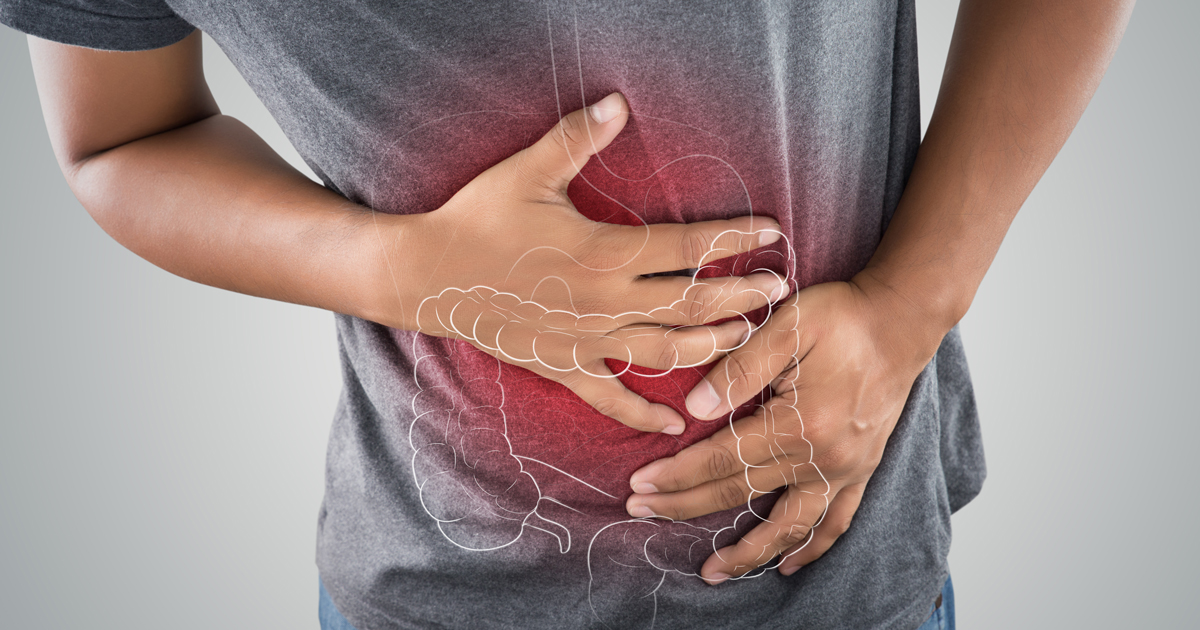Inflammatory bowel disease: How serious is it?

Inflammatory bowel disease, or IBD, is a chronic disease that includes Crohn's disease and ulcerative colitis. Crohn's disease, or CD, can affect any part of the gastrointestinal tract from the mouth to the anus. Ulcerative colitis, or UC, only affects the colon and/or rectum.
How serious is inflammatory bowel disease?
Like other chronic diseases, IBD can be mild, moderate or severe. "IBD that is untreated or has complications can be serious," says gastroenterologist Kathryn Hutchins, MD. "Patients with Crohn's or ulcerative colitis should see their gastroenterologist regularly for help managing their medications and health care related to IBD."
Patients who develop IBD have a genetic predisposition for CD or UC. "We suspect there's a factor, possibly an environmental factor or something else, which triggers the immune system in those with a genetic predisposition," explains Dr. Hutchins. "The symptoms you experience are related to the triggered immune system and subsequent inflammatory response."
"The presence of this genetic predisposition doesn't mean a patient will develop CD or UC," adds Dr. Hutchins. "We don't test for this genetic predisposition in a clinical setting. However, only a minority of those with a genetic predisposition will go on to develop the disease."
Can IBD lead to cancer or other serious conditions?
"Certain cancers are associated with IBD," says Dr. Hutchins. "Patients with Crohn's disease and UC who have inflammation involving the colon should begin surveillance colonoscopies eight years after diagnosis."
Your gastroenterologist will determine when and how often you should have a colonoscopy. Compared to the general population, there's an increased risk of colon cancer, and the risk begins to rise eight years after diagnosis.
"The medications used to treat IBD have changed the course of the disease positively," says Dr. Hutchins. "Similar to other chronic diseases, health care maintenance is important. Patients need to undergo routine monitoring for conditions that can be associated with IBD as well as the medications we use to treat the IBD."
How can I tell if I have IBD?
IBD can present differently, depending on where the inflammation or active disease is located. Symptoms of IBD can be as vague as abdominal pain or weight loss. IBD symptoms can range from mild to severe, depending on where the inflammation occurs. There may be periods when the disease worsens, resulting in symptom flare-ups.
A patient with a new diagnosis of UC will typically have symptoms such as:
- Diarrhea
- Blood with stool
- Urgent bowel movements
A patient with Crohn's disease can experience a variety of symptoms, including:
- Diarrhea
- Abscess
- Fistula (abnormal connection from the GI tract to another place in the body)
- Abdominal pain and weight loss after diarrhea
When should I see a doctor?
"You should see a doctor if you have ongoing GI symptoms that are unexplained," says Dr. Hutchins. "Usually, it's best to start with your primary care doctor who can refer you to a specialist if needed."
IBD diagnosis involves a thorough exam by a physician to determine the appropriate testing. Testing might include blood work, stool studies, endoscopic evaluation and imaging studies. Not all patients need every test, and the appropriate work-up should be tailored to the patient's symptoms.
How is IBD treated?
"There have been tremendous advances in IBD knowledge and treatment over the past several years," says Dr. Hutchins. "Unfortunately, we have not yet found a cure. However, there are several medications that help us achieve both clinical and endoscopic remission – meaning that symptoms resolve and the lining of the GI tract looks normal."
IBD is best treated with a multidisciplinary team, including but not limited to gastroenterologists, surgeons, pharmacists, psychologists and dietitians. The main component of treatment is medication in the form of pills, IV infusions or shots. Some patients with IBD will need surgical procedures as a part of their treatment.
Although research is limited, there are dietary approaches that can be used to complement medical treatment for IBD. This is why a dietitian is an important member of the IBD team. Similar to any chronic disease, there are also lifestyle modifications that can be beneficial. Smoking, for example, has been shown to worsen Crohn's disease.
What is the prognosis for someone with IBD?
Overall, the prognosis for IBD patients working with a multidisciplinary team is good. The IBD journey varies significantly from patient to patient. The treatment approach can look different based on the location and severity of disease. And short-term management of IBD looks different than long-term management. Patients can also have a flare of symptoms that require additional testing and potentially new treatments. IBD specialists are optimistic that one day there will be a cure, and management of the disease will shift once again.
If you are ready to schedule an appointment, call 800.922.0000 and ask to be connected to the Frederick F. Paustian Inflammatory Bowel Disease Center.







